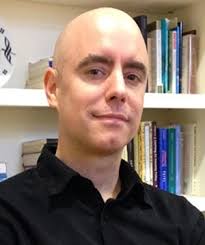
No matter how lavish your life is it can go upside down if you are not taking care of yourself. You have to be careful about the methods and techniques you use. You have to be careful about the options you use to make sure that you have the right body and health. What is the point if you are eating unnecessary or your health is giving you hints but you are too consumed by worldly pleasures that you neglect that all? Such things do lead to severe health issues that can be life threatening. The good news is that even if you find anything going wrong with your heart or other organs; you can always rely on specialists like Top 10 cardiac surgeons in India. In this way, you can be sure about your fit health and body.
Who is a cardiac Surgeon?
A cardiothoracic surgeon is a medical specialist or doctor who specializes in surgical process of the heart, oesophagus, lungs, and other organs in the chest. Such a thing includes surgeons who can be known as cardiac surgeons, general thoracic surgeons, cardiovascular surgeons, and congenital heart surgeons. These specialised fellows can help you with all kinds of heart conditions.
These cardiothoracic surgeons operate on ailments that take place in the organs within the chest and in the bony type of structures and tissues that create the chest cavity. Then talking about coronary artery disease, it is one of the most common ailments treated by cardiothoracic surgeons.General thoracic surgeons do treatment of primarily lung cancer and ailments of the oesophagus and also chest wall. Then congenital heart surgeons take care for babies and children having holes between the heart chambers or irregular connections inside the heart.
A cardiac or cardiovascular surgeon can do treatments of:
- Coronary artery ailment or blockages of the arteries in your heart
- Blockages in your heart valve(s)
- Atrial fibrillation
- Leaking heart valve(s)
- Anomalous enlargement or aneurysms of the huge arteries in the chest
- Issues regarding heart failure
A general thoracic surgeon can do treatments of:
- Lung cancer
- Swallowing disorders such as achalasia
- Severe emphysema
- Hiatal hernias
- Oesophageal cancer
- Gastroesophageal reflux disease
Talking about a congenital heart surgeon, he or she could treat:
- Atrial septal flaws
- Hypo plastic left or right heart syndrome
- Transposition of the great arteries
- Ventricular septal defects
- Coarctation of the aorta
A cardiologist is primarily going to diagnose disorders of your heart and treat them with medication. Cardiologists even carry out tasks related to interventions on the arteries in your heart working through puncture wounds in groin, but these fellows do not perform open surgery.A pulmonologist is the one who diagnose disorders of the lung and treatment of them with medication. Some pulmonologists will even perform interventions via the airway but do not carry out open surgery. It might interest you that all the cardiothoracic surgeons have the same usual training and are certified by the same forte board, except for congenital heart surgeons. The qualification of these specialists is rich and it enables them to take care of patients in the most effective manner.
What is open heart surgery?
Talking about open-heart surgery, it is any kind of surgery wherein the chest is cut open and surgery gets performed on the valves, muscles, oreven arteries of the heart.Open-heart surgery is sometimes even called traditional heart surgery. In the present time, various new heart procedures can be carried out with only small incisions, not huge openings. Therefore, the term “open-heart surgery” can at times be misleading.
When is this surgery needed?
Open-heart surgery might be done to carry out a CABG. A coronary artery bypass graft might be essential for individuals with coronary heart ailment.Coronary heart disease takes place when the blood vessels that cater blood and oxygen to your heart muscle gets narrow and hard. This is most of the times called “hardening of the arteries.” Talking about hardening, it occurs when fatty material builds up a plaque on the walls of your coronary arteries. Such a plaque narrows the arteries, making it challenging for blood to get through. Onceblood cannot flow properly to the heart, a heart attack might occur.
Open-heart surgery is also performed to:
- repair or replace heart valves that do permit blood to travel through the heart
- repair damaged or abnormal zones of the heart
- implant the medical devices that aid the heart beat properly
- replace a injured heart with a donated heart (heart transplantation)
How open-heart surgery does gets performed?
- First of all the patient is given general anaesthesia. It makes sure that they will be asleep and pain free during time of the entire surgery.
- The surgeon makes an eight to ten inch cut in the chest.
- The cardiac surgeon cuts through all or portion of the patient’s breastbone to expose the area of heart.
- Once the heart is visible, the patient might be connected to a heart-lung bypass machine. It is the machine that moves blood away from the heart so that the surgeon can do the operation. There are new procedures that do not use this machine.
- The surgeon makes use of a healthy vein or artery to make a fresh path around the blocked artery.
- The surgeon shuts the breastbone with wire, leaving the wire within the body.
- The original cut gets stitched up.
However, sometimes even sternal plating is done for people at high risk, like the ones who have had manifold surgeries or individuals of advanced age. Sternal plating is when the breastbone gets re-joined with small titanium plates after the performance of surgery. Since new options, techniques and procedures are emerging; changes are taking place too. There are machines and tools in the medical field that are making the tasks less painful and more effective.
Conclusion
Thus, there is nothing to worry about your health and body if you take precautions and actions timely. You can always reach out to professionals for health advice and treatments.






